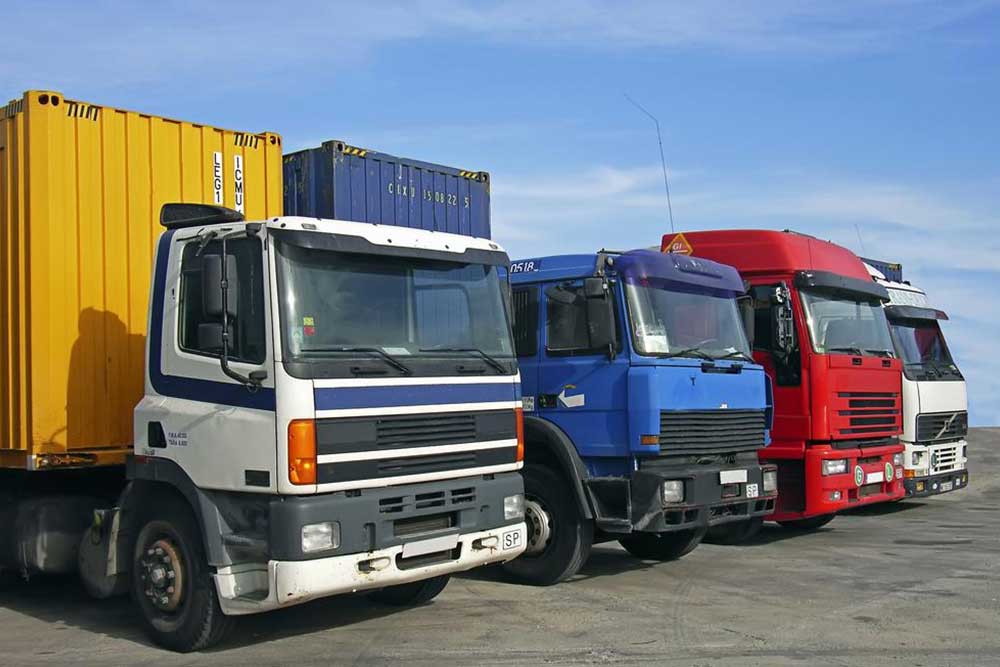Essential Guide to Commercial Truck Insurance and Its Coverages
This comprehensive guide covers essential aspects of commercial truck insurance, including liabilities, vehicle and cargo coverage, and top insurance providers. Designed to inform truck owners and operators, it highlights key protections and best options for safeguarding assets during transportation. Understanding these coverages helps ensure compliance, safety, and financial security across trucking operations.
Sponsored

Obtaining truck insurance is a legal obligation for owners and operators of commercial, leased, or rented vehicles. Businesses and individual drivers must insure each vehicle used for work, with costs varying based on vehicle type, cargo, and regional regulations. Insurance provides vital protection against financial losses, safeguarding assets. This guide covers key insurance aspects, including liability, coverage for owned and leased trucks, trailer protection, off-duty coverage, and cargo safeguards, ensuring truck owners are well-informed and prepared.
Liability Insurance
Commercial truck policies include primary liability to cover legal responsibilities if third parties are harmed during an accident, as well as general liability for property or bodily damages that occur during operations. Some policies also cover loading errors, paying for damages caused by improper cargo handling.
Coverage for Owned and Leased Vehicles
Insurance for trucks you own or lease typically covers damages from collisions, vandalism, natural disasters, or theft, including repair and replacement costs based on policy evaluations. Owners of semi-trucks and long-distance vehicles can also add trailer interchange coverage to protect leased trailers from damages.
Bobtail Insurance
When trucks operate without a trailer or are returning home, bobtail insurance offers protection against liabilities during these off-dispatch hours. It covers damages when the vehicle is parked at the garage or resting at a truck stop, safeguarding against personal or property damages during such periods.
Cargo Insurance
Given the value of freight, cargo insurance offers protection against damage or theft during transport. While not all freight types are covered, this insurance helps truckers recover losses incurred during long hauls, enhancing security for handling high-value goods.
Reefer Breakdown Coverage
For perishable cargo transported over long distances, reefer breakdown insurance covers costs if refrigeration units malfunction or fail, protecting the freight. This coverage also applies to damages or losses resulting from collisions involving refrigerated trailers, although it excludes certain perishables.
Additional Protections
Long-haul operators face risks from uninsured or underinsured motorists. Extra coverage ensures damage or injury caused by such drivers is covered, protecting asset value and liability exposure.
Other Benefits and Reimbursements
Routine vehicle maintenance, repairs, and replacements are crucial for safety and efficiency. Insurance may include rental reimbursement to lease a replacement truck during repairs, along with medical coverage for owners and passengers, depending on policy specifics.
Leading providers in 2021 include:
StateFarm: With operations since 1935, StateFarm offers comprehensive policies for commercial vehicles, including owned, leased, and short-term rental trucks. Personalized consultation and customizable options make them a top choice for businesses.
Nationwide: Recognized for meeting state-specific insurance mandates, Nationwide provides coverage starting at $100,000 per vehicle and up to $1 million, covering liabilities, cargo, and breakdowns, adaptable for various truck types.
Progressive® Commercial: Perfect for heavy-duty and long-haul trucks, Progressive offers tailored quotes and specialized coverage like cargo, trailer interchange, and downtime reimbursement, with premiums typically ranging from $640 to $980 monthly based on vehicle and operation specifics.






